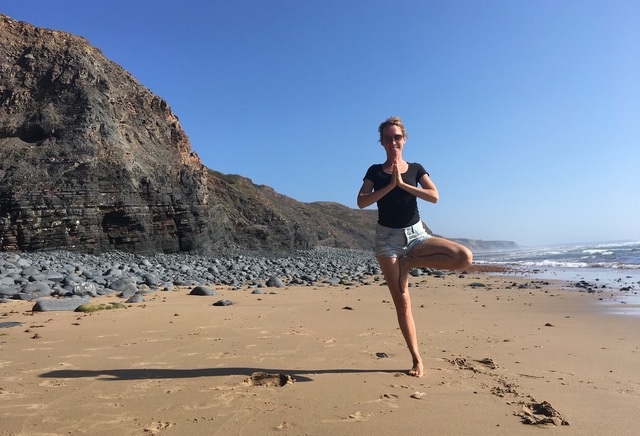Nov 17th How Mindfulness Helped Me Cope With ADD Symptoms
By José Schrijver
I was 27 when things went completely wrong: I was suddenly at home with a breakdown. During that time, I worked full-time for several employers and pursued a part-time HBO studio. It was no longer possible; I could barely move from bed to sofa in the morning. After many conversations with my primary care physician, the mental health counselor in the doctor’s office, and various psychologists, it slowly became clear: The cause of my burnout was (largely) ADD. The diagnosis came as no surprise. I felt a lot of recognizability and gained more understanding for myself.
Meanwhile, more than 8 years later, I have largely understood the symptoms of ADD, which is now called ADHD-I (attention deficit type). I had too many side effects from the drugs, so I started looking for other methods, which I now write about on my blog. An important practice that has changed my life is mindfulness.
What is Mindfulness?
Mindfulness is attention training; perfect for people with ADHD, who have trouble concentrating. During mindfulness you learn to be in the here and now with your attention. You mainly learn this by practicing different forms of meditation. But also, for example, by eating carefully. It sounds a little crazy at first, but you’ll soon notice the benefits.
During mindfulness exercises, for example, you focus completely on your breathing or on what you hear, see, think or feel. In this process you learn to observe what is happening, without judging. So you learn to feel better and listen to what is in that moment. But you also learn that you don’t always have to react and you don’t have to find something about everything.
I took a course
During my burnout period I took an 8 week mindfulness course through PsyQ. “Mindfulness is hard for people with ADHD,” one of the counselors told me. I gladly accepted this challenge.
I soon realized this was going to change my life with ADD. Not only did my concentration improve and I started living more and more in the present. But I also learned which bad habits aggravated my ADD symptoms. For example, during one of the first days of training I noticed how shallow my breathing is. This quickly improved. I started breathing better and this had a positive effect on my brain. When you become aware of something, you can do something about it. And that’s exactly what mindfulness brings you: awareness.
What did it bring me?
Mindfulness set everything in motion for me: I gained more insight into the needs of my ADD brain and how I can better organize my life. But also in what I should and shouldn’t eat, which people give me energy, and who I should distance myself from and so on. Below is a small overview of what mindfulness has brought me.
• Better concentration. With mindfulness we train our attention.
• Rest, meditating daily, observing and feeling what I need.
• Hold on to impulsiveness, because now I think about what’s going on inside of me before I react.
• I live more in the moment, instead of in my (busy) head.
• Better Grounded: Instead of “in my busy head” I feel grounded more often. Mindfulness exercises help me with this.
• Self-love and self-understanding: I don’t judge so fast anymore. I am more tender with myself, and therefore also with others. You will also learn this in a mindfulness class.
Conscious living: It doesn’t come naturally
“I can’t meditate. It’s not for me,” I often hear. I can’t believe it: meditation is for everyone. What I see around me is that everyone has difficulty meditating at first; ADHD or not. We are not used to being silent and observing. It may be even more difficult for children and adults with ADHD than for someone with a neurotypical brain. But if you practice daily – we practiced for at least an hour a day during the course – I dare say it will have an enormously positive impact on your life. After a while, mindfulness becomes more of a way of life; you will live your life more consciously, more carefully, more consciously.
I don’t have a disorder, but a wandering mind
I am very grateful that my GP allowed me to take a mindfulness course. This started it all. For example, I quickly realized that I don’t want to approach my brain as a brain with attention deficit disorder. Perception is important. “I, like many others, have a unique brain. A brain that works differently,” I said to myself. I started using a different name for this brain and now call it the wandering mind. This wandering mind faces challenges, but it also has many qualities. Here’s what I write on my blog: Wandering minds.
A “happy life” with ADD, without drugs
I don’t take medication for ADD, but I’ve discovered many other things besides mindfulness that help me keep my wandering mind in check. Think about nutrition, exercise, lifestyle and supplements. My blog (which was originally called Fun Living with ADD) was born out of a desire to share my experiences; a few years ago there wasn’t much information available about alternative ways to deal with ADHD.
I think it would be nice if you check out Wandering Minds! You are also welcome to the Facebook community and Instagram, where many other ‘Wandering Minds’ share their experiences.
Besides by author
I’m José Schrijver from ’86 and I live in The Hague. But I prefer traveling by RV, being in nature or visiting beautiful communities. When I was 27, while sitting at home with a breakdown, I was diagnosed with ADD. Medications weren’t a (long-term) solution for me, so I started looking for alternatives.
I share my experiences on my blog: wanderingminds.world. This blog has now become a platform where I regularly connect with like-minded people: other adults with unique, creative, inventive and wandering brains. As a “multipotential” I work as an (independent) SEO content specialist, copywriter, course provider and blogger. But I also enjoy working on organic farms or people’s gardens. The more varied, the better. 🙂


![The 267th day of the Ukrainian war. Latest information [papildināts 11:45] The 267th day of the Ukrainian war. Latest information [papildināts 11:45]](https://zinas.nra.lv/_mm/photos/2022-11/860px/585512_95e5e7afd4.jpg)